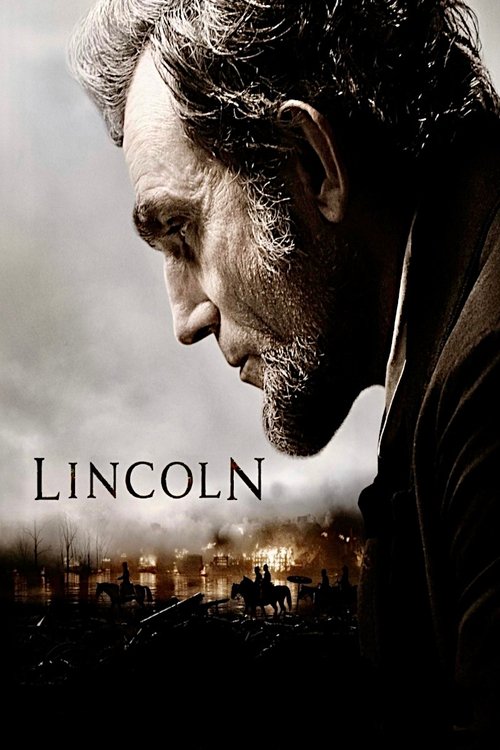
Title: Lincoln
Year: 2012
Director: Steven Spielberg
Writer: Tony Kushner
Cast: Daniel Day-Lewis (Abraham Lincoln), Sally Field (Mary Todd Lincoln), David Strathairn (William Seward), Joseph Gordon-Levitt (Robert Lincoln), James Spader (W.N. Bilbo),
Runtime: 149 min.
Synopsis: The revealing story of the 16th US President's tumultuous final months in office. In a nation divided by war and the strong winds of change, Lincoln pursues a course of action designed to end the war, unite the country and abolish slavery. With the moral courage and fierce determination to succeed, his choices during this critical moment will change the fate of generations to come.
Rating: 6.856/10